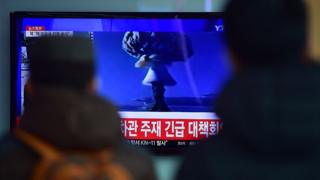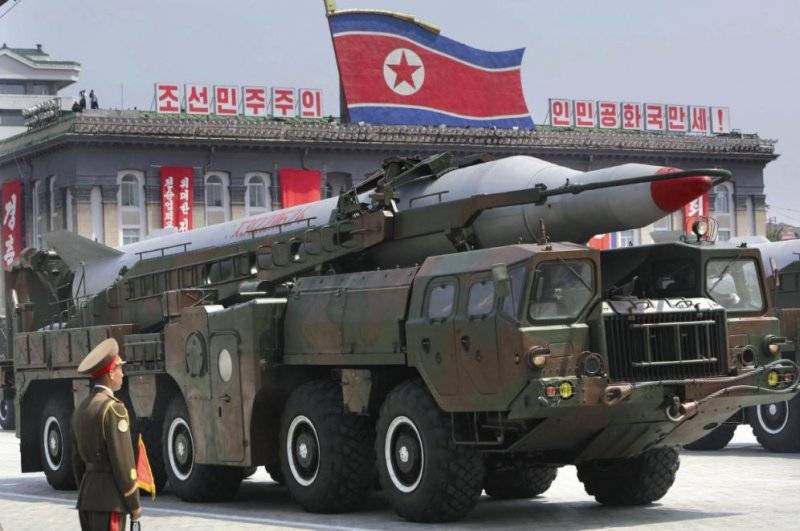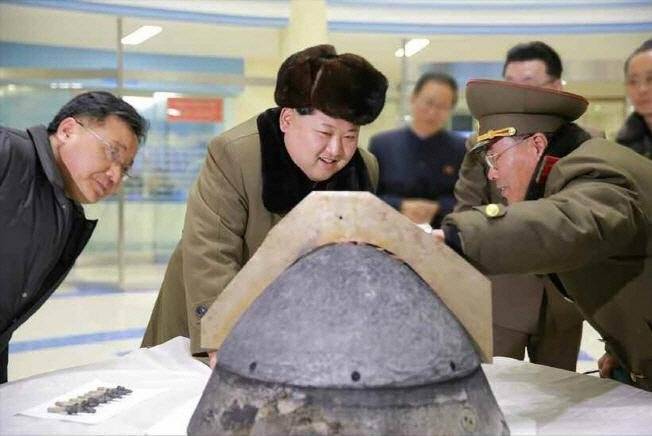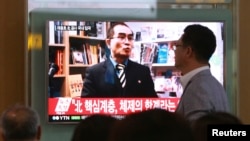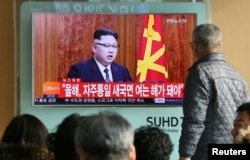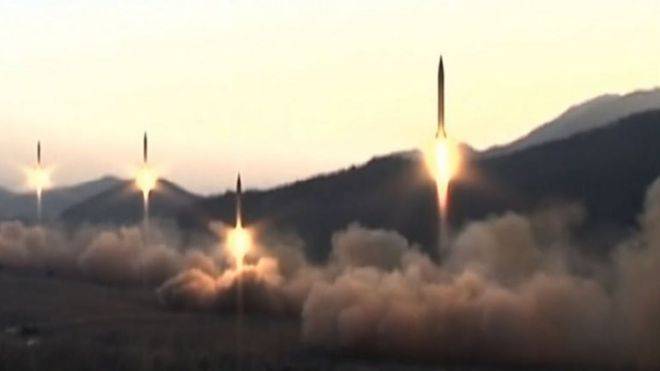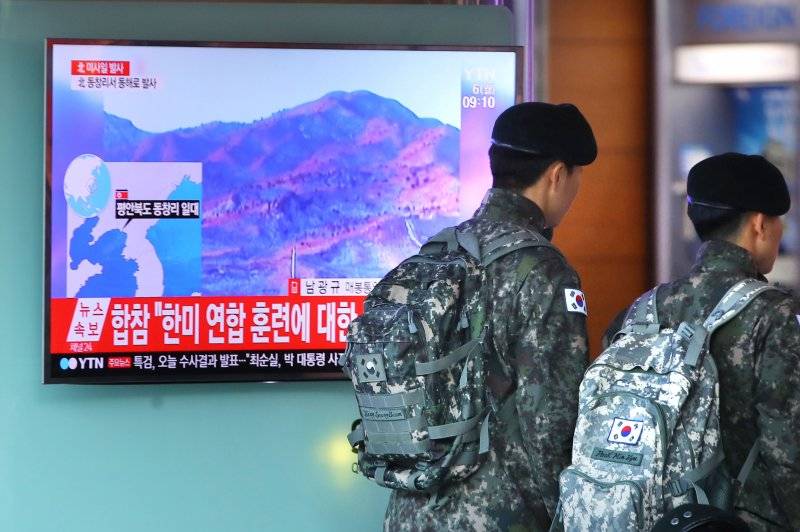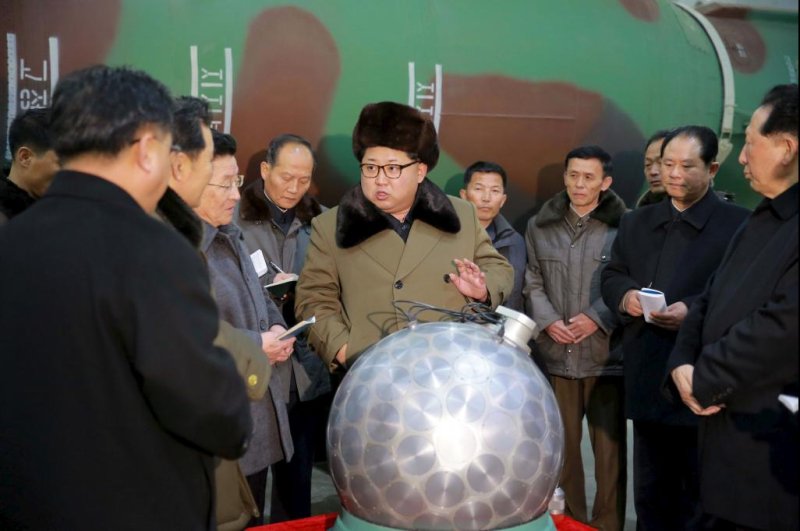waltky
Wise ol' monkey
Granny says, "Dat's right - Trump gonna settle Fatboy's hash...

North Korea says nuclear development 'permanent'
Jan. 3, 2017 - Pyongyang’s state newspaper defended the policy as a deterrent against the United States’ military "threats."
See also:
Seoul: Trump's tweets are clear warnings to North Korea
Jan. 3, 2017 -- U.S. President-elect Donald Trump's tweeted response to North Korea's statement on missile development is a warning to Pyongyang, Seoul said Tuesday.
Related:
State Department: North Korea not capable of tipping missile with nuclear weapon
Jan. 3, 2017 -- The U.S. State Department said Tuesday it does not believe Kim Jong Un has the capability to place a nuclear warhead on a ballistic missile.
North Korea says nuclear development 'permanent'
Jan. 3, 2017 - Pyongyang’s state newspaper defended the policy as a deterrent against the United States’ military "threats."
North Korea's Workers' Party newspaper Rodong Sinmun stated Tuesday the country's policy of developing nuclear weapons while simultaneously pursuing economic growth remains unchanged. Two days after Kim Jong Un had said in his televised New Year's speech Pyongyang is ready to test an intercontinental ballistic missile, state media announced the country's policy of "Byongjin" is a permanent feature, South Korean news agency Newsis reported.
The statement appears to have been issued for propaganda purposes and to muster support for Kim's ambitions to raise North Korea's profile as a "nuclear power," according to the press report. "North Korea's resolve is always soon placed into practice," Pyongyang's statement read. "[Our] resolve is always truthful and scientific, and must be placed in action at all costs...the Party's path of Byongjin must be permanently held in hand, and not as a temporary countermeasure that copes with a sudden change in the state of affairs."
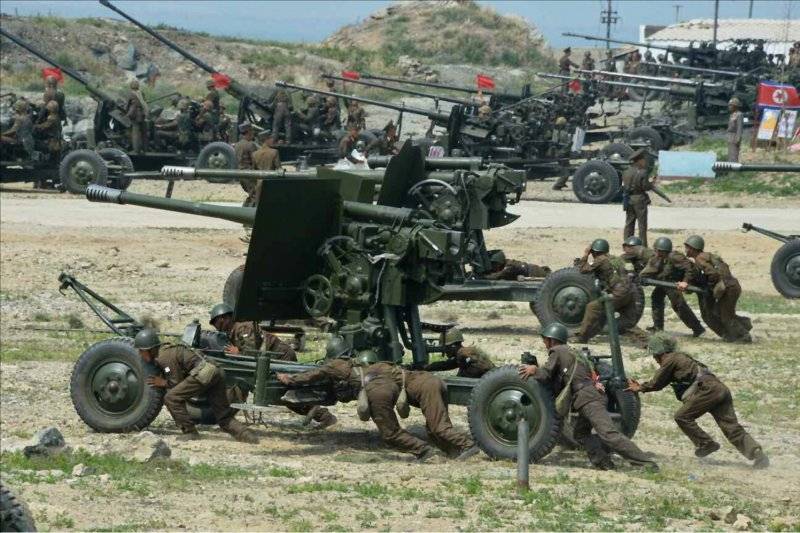
No. Korea war games on invading the So. Korea
The North Korean newspaper also stated Kim's speech pointed out the "pivotal" role of nuclear power in the face of the "nuclear threat and intimidation of the United States and its followers." "We will continue to reinforce [nuclear power] for defense purposes," Pyongyang said in statement.
The Rodong article also linked nuclear weapons development to the North Korean people's capacity to "live with ten thousand blessings in a socialist state." The weapons represent the "most just, scientific route" for the society, the statement read. On New Year's Day, Kim had vowed to develop Pyongyang's nuclear arsenal and to continue the policy until the United States stops military drills in South Korea.
North Korea says nuclear development 'permanent'
See also:
Seoul: Trump's tweets are clear warnings to North Korea
Jan. 3, 2017 -- U.S. President-elect Donald Trump's tweeted response to North Korea's statement on missile development is a warning to Pyongyang, Seoul said Tuesday.
South Korea's foreign ministry spokesman Cho Joon-hyuk told reporters Trump's tweets, sent out on Monday, were the first messages the president-elect has issued directly addressing North Korea, South Korean news service News 1 reported. "President-elect Trump's messages can be interpreted as a clear warning, regarding Kim Jong Un's New Year's Day speech and the statement on intercontinental ballistic missiles," Cho said.
On Monday, Trump tweeted, "North Korea just stated that it is in the final stages of developing a nuclear weapon capable of reaching parts of the U.S. It won't happen!" Trump then tweeted, "China has been taking out massive amounts of money & wealth from the U.S. in totally one-sided trade, but won't help with North Korea. Nice!"
The president-elect has previously said Beijing has done little to assist the United States in controlling North Korea's weapons proliferation, a statement that has invited speculation about his future North Korea policy and his approach to China, a country that has been cooperating on tougher sanctions.
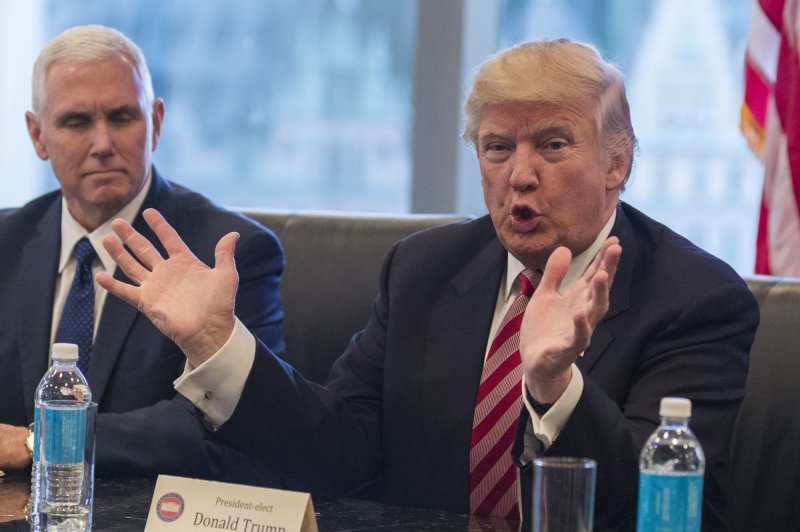
Cho added Seoul is cooperating closely and is in "strategic communication" with Trump's transition team as well as the current administration of President Barack Obama. Beijing has yet to issue a response to Trump's social media statements, but on Monday state tabloid Global Times listed the "Korean peninsula" as the top site of a possible military conflict in 2017.
Beijing's state media claimed the peninsula cannot be ruled out as a place of conflict during Trump's presidency, and warned of a military response if Taiwanese President Tsai Ing-wen continues to strengthen notions of Taiwanese independence from the mainland. Under the "one-China policy" Beijing does not recognize Taiwanese sovereignty.
Seoul: Trump's tweets are clear warnings to North Korea
Related:
State Department: North Korea not capable of tipping missile with nuclear weapon
Jan. 3, 2017 -- The U.S. State Department said Tuesday it does not believe Kim Jong Un has the capability to place a nuclear warhead on a ballistic missile.
The statement comes a few days after the North Korean leader announced his country is ready to test an intercontinental ballistic missile. Department spokesman John Kirby made the statement the same day the White House said nothing has changed in its assessment of North Korea's nuclear and missile programs, Yonhap reported. North Korea sent shockwaves around the world after Kim said in a televised statement on Sunday the country is almost ready to test an intercontinental ballistic missile.
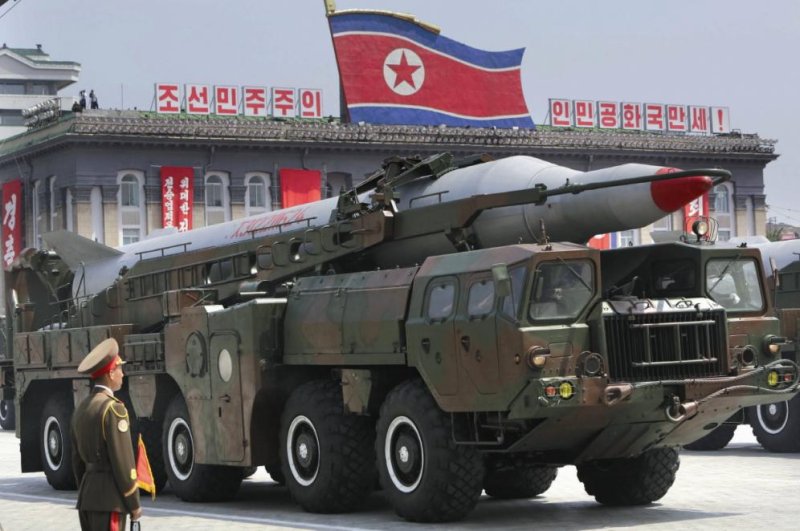
Kim also vowed to continue the development of the weapons as long as the United States remains committed to holding military exercises on the Korean peninsula. On Tuesday Kirby said the U.S. military stands ready deter Pyongyang's biggest threats, owing to a policy of rebalancing in the Asia-Pacific. "There is a military component to the Asia Pacific rebalance that the United States has pursued, and we have the majority of the U.S. Navy in the Pacific region," Kirby said. "We've moved special radars into place."
At the White House, spokesman Josh Earnest said there was "no change" in the assessment of North Korea's nuclear and missile development, and any changes in the assessment would come from the intelligence community. Seoul is taking North Korea's weapons program seriously and is to launch in 2017 a special unit assigned to strike the North Korean leadership, two years ahead of schedule, according to Yonhap. "We are planning to set up a special brigade with the goal of removing or [at least] paralyzing North Korea's wartime command structure [in the face of escalating threats]," Han said.
State Department: North Korea not capable of tipping missile with nuclear weapon
